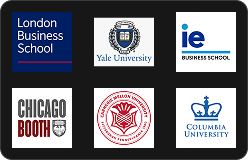
Top MEM Schools in Canada: Your Guide to the Best Programs for 2025
Top MEM Schools in Canada: Your Guide to the Best Programs for 2025Thinking about mixing your engineering background wi…
Table of Contents

The York Schulich Master of Finance (MFin) is one of the top programs in Canada for students who want careers in banking, investment, or corporate finance. Offered by the Schulich School of Business at York University, it combines strong academics with real-world learning. When people ask what is Schulich known for, finance is one of the first things that comes up. It’s especially popular among those looking for masters in finance in Canada for international students.
The Schulich MFin stands out for many reasons — reputation, location, and outcomes. Students from around the world choose this program to fast-track their careers.
The Schulich School of Business is known worldwide for excellence in finance education. Global rankings consistently place it among the best. Employers trust the Schulich Master of Finance degree, which makes your resume stronger. The program is also flexible, offering a solid finance specialization Schulich is proud of — covering everything from investments to risk management.
The MFin Schulich program is held at York’s campus in Toronto, the biggest financial hub in Canada. This gives you easy access to banks, consulting firms, and finance events. Being so close to top companies helps with networking, internships, and full-time job offers.
Graduates of the Master of Finance Schulich program work across major cities and finance roles worldwide. This strong York global finance network is a huge plus — alumni help with mentorship, referrals, and career guidance. The school also partners with top employers who actively recruit from the program.
The Schulich MFin is built for career development. Many students land roles in investment banking, equity research, or corporate finance soon after graduation — some even before. Thanks to the career support and employer connections, students leave the program well-prepared and job-ready.
The York Schulich MFin program has a strong and focused curriculum. It helps students learn the most important finance skills they need for jobs in banking, investing, and other finance careers.
The program includes core courses that teach the basics and more advanced parts of finance. Some of the main subjects are:
These courses are designed to match the skills employers look for in finance professionals.
The program may offer options to focus on a certain area of finance. These specializations help students dive deeper into topics like:
One of the best parts of the Schulich MFin is its focus on applied learning. This means students don’t just study from books. They also:
This hands-on experience helps students feel ready for the real world.
The York Schulich Master of Finance (MFin) program offers both full-time and part-time study options to accommodate different student needs.
The full-time MFin program is a 12-month course that starts in August each year. It spans three academic terms, providing an intensive and comprehensive education in finance.
For working professionals, Schulich offers a part-time MFin program. This program is designed to be completed over 24 months, with classes held two evenings per week at the downtown Toronto campus. This flexible schedule allows students to continue working while pursuing their degree.
Both formats provide the same rigorous curriculum and opportunities for specialization, ensuring that all students receive a high-quality education tailored to their career goals.

The York Schulich Master of Finance (MFin) program has some special features that make it stand out from other finance programs. These features give students real-world tools and strong career support.
Schulich is a CFA (Chartered Financial Analyst) Program Partner. This means the MFin program covers much of the material needed for the CFA Level 1 exam. Many employers in finance look for CFA-certified professionals, so this gives students a big advantage. Students can also get access to CFA resources, scholarships, and extra support while studying.
Students at Schulich learn how to use Bloomberg terminals—the same software that real traders and analysts use. These tools help students track market news, prices, and financial data in real time. Schulich also has a trading lab where students can practice making investment decisions in a classroom that looks and feels like a real trading floor.
At the end of the program, students work on a capstone project. This is a final assignment where they solve a real business or finance problem. It brings together everything they’ve learned in the program.
There may also be internship opportunities, especially for full-time students. These internships give students hands-on experience in banks, investment firms, or other financial companies. Working in the field before graduation helps students build their resume and make strong job connections.
To apply for the York Schulich MFin program, you need to meet certain academic and experience requirements. Here's what you should know:
To apply for the York Schulich MFin program, you need to submit several important documents and test scores. Here's what you should prepare:
If your previous studies were not in English, you need to prove your English proficiency:
Use clear headings and bullet points to organize the information.
The York Schulich MFin program starts once a year in September. To apply, you can choose one of the four application rounds. It's best to apply early, especially if you're an international student, to have enough time for visa processing.
Here are the key deadlines for the September 2025 intake:
Application Round | Deadline | Who Should Apply |
| Round 1 | October 16, 2024 | All applicants |
| Round 2 | January 29, 2025 | Recommended for international applicants |
| Round 3 | March 26, 2025 | Final round for international applicants |
| Round 4 | June 11, 2025 | Domestic applicants only |
The tuition fees for the Schulich Master of Finance (MFin) program vary based on your student status. As of the Fall 2024 academic year, the estimated total program fees are:
Student Status | Estimated Program Total |
| Domestic Students | $84,850 CAD |
| International Students | $136,000 CAD |
Living in Toronto involves various expenses. Here's an approximate breakdown for a 4-month term
Expense Category | Estimated Cost (CAD) |
| Rent (on-campus) | $5,000 |
| Food | $1,500 |
| Books and Materials | $750 |
| Personal Expenses | $3,000 |
| Total per Term | $10,250 |

Schulich offers various financial support options to help students manage their educational expenses.
Schulich provides merit-based entrance scholarships for incoming students. International applicants are automatically considered for these awards during the admission process. Some notable scholarships include:
Students may also explore external scholarship opportunities, such as:
Vector Scholarships in Artificial Intelligence: Valued at $17,500 for students pursuing studies in AI-related fields.
Additional financial support includes:
The York Schulich MFin program helps students start strong careers in finance. Graduates find jobs in top companies, earn good salaries, and get support from the school's career services.
Graduates work at well-known banks, consulting firms, and investment companies. Some of the top employers include:
These companies hire graduates for roles like financial analyst, investment banking analyst, and credit risk analyst.
Students who finished the program in 2021 reported the following:
These numbers show that most students find good jobs quickly after graduating.
The school's Centre for Career Design (CCD) offers many services to help students find
The York Schulich MFin program attracts a diverse group of students from around the world. Here's what a typical class looks like:
This mix of students from different countries and backgrounds creates a rich learning environment where everyone can share unique perspectives.
The York Schulich Master of Finance (MFin) program is recognized globally for its excellence in finance education. It holds prestigious rankings and accreditations that reflect its quality and reputation.
The Schulich School of Business is among the elite group of business schools worldwide that hold the Triple Crown accreditation, which includes:
Achieving all three accreditations is a mark of excellence and places Schulich among the top business schools globally.
Being part of the York Schulich MFin program is not just about classes and textbooks. It’s also about making new friends, joining clubs, going to events, and enjoying life in one of Canada’s biggest cities.
The Schulich School of Business offers a lively and active student life. Here are some of the things students enjoy on campus:
Campus life at Schulich helps students grow both personally and professionally.
Toronto is one of the best cities in North America for students, especially those interested in finance.
Living and studying in Toronto gives students a full experience—inside and outside the classroom.

When choosing a Master of Finance program in Canada, it's helpful to compare key features like program length, focus areas, and career opportunities. Here's a brief comparison:
University | Program Name | Duration | Focus Areas | Location |
| York University (Schulich) | Master of Finance (MFin) | 12 months | Capital markets, risk management, CFA preparation | Toronto |
| Queen's University (Smith) | Master of Finance (MFin) | 12 months | Practical applications, CFA preparation | Toronto |
| UBC Sauder School of Business | MSc in Business Administration - Finance | 24 months | Research-oriented, academic focus | Vancouver |
| McGill University (Desautels) | Master of Management in Finance (MMF) | 12 or 16 months | Applied finance, real-world projects | Montreal |
University | Typical Employers | Career Support |
| York Schulich | Banks, investment firms, consulting companies | Career coaching, networking events |
| Queen's Smith | Financial institutions, consulting firms | Career services, alumni network |
| UBC Sauder | Academic institutions, research organizations | Research mentorship, academic advising |
| McGill Desautels | Investment banks, asset management firms | Career development workshops, industry connections |
Each program has its unique strengths, so consider your career goals and learning preferences when making a choice.
